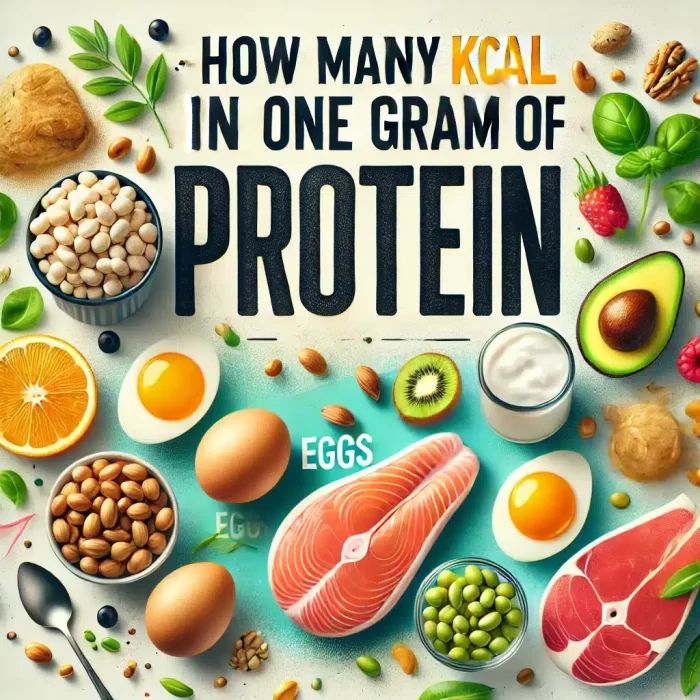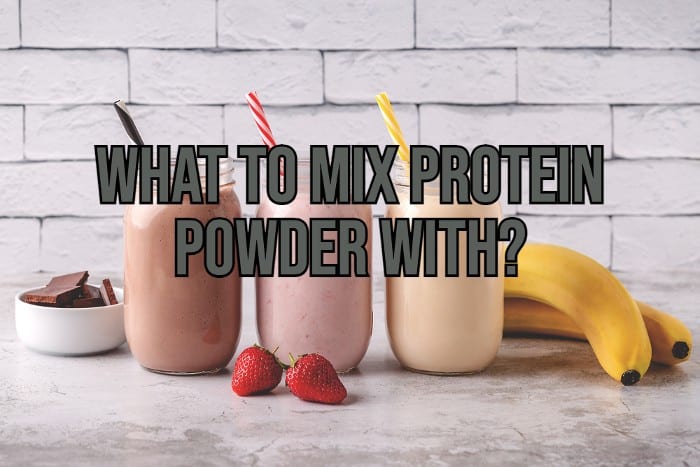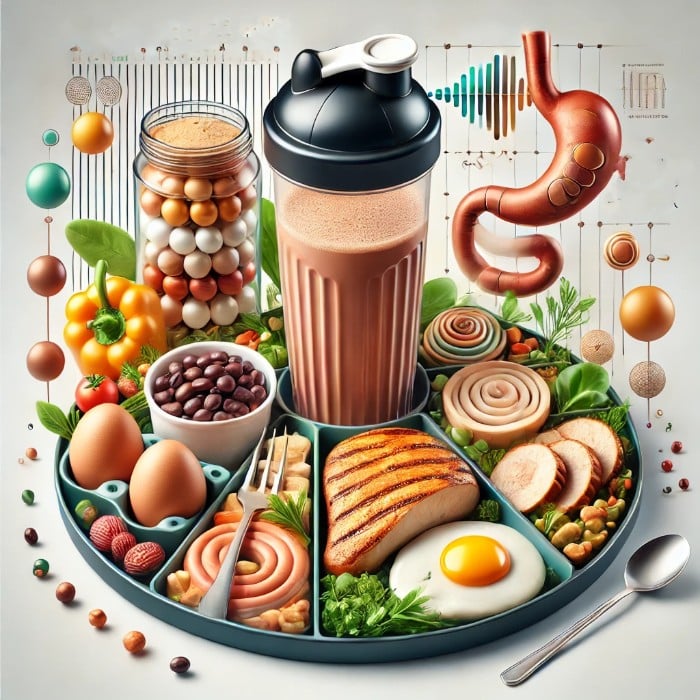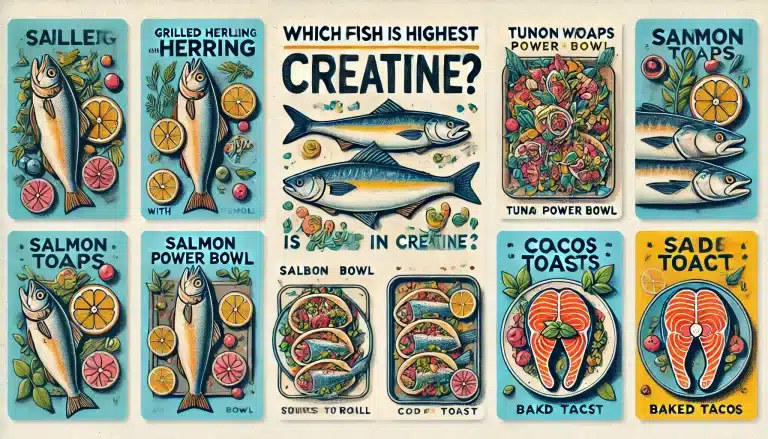How Many Kcal In One Gram Of Protein?
When it comes to understanding nutrition, knowing how many calories are in the food you eat is crucial, especially if you’re aiming to lose weight, gain muscle, or just maintain a healthy lifestyle. One of the most common questions people ask is: How many kcal are in one gram of protein?
While this might seem like a small detail, it’s actually the foundation for managing your diet effectively. Whether you’re trying to build muscle, shed some pounds, or just keep your body running at its best, understanding how your body uses protein for energy is key. After all, the food you eat is more than just fuel, it impacts your metabolism, performance, and overall health. So, let’s break it down in simple, easy-to-understand terms.
The Simple Answer:
One gram of protein contains 4 kilocalories (kcal). You might also hear these referred to simply as “calories,” since in everyday language, the term “calorie” is used instead of “kilocalorie.”
This means that every gram of protein you consume contributes to your daily energy intake. It may not sound like much, but when you consider the total grams of protein in your daily diet, those calories add up quickly. Think about it: if you’re eating 100 grams of protein a day, that’s 400 kcal right there! Understanding this helps you plan your meals, balance your macronutrients, and stay on track with your health goals.
What Is a Kilocalorie?
Before diving deeper, it helps to understand what a kilocalorie actually is. A kilocalorie (kcal) is a unit of energy. In nutritional terms, it measures the amount of energy your body gets from food and drinks. Technically, one kilocalorie is the amount of energy needed to raise the temperature of one kilogram of water by one degree Celsius.
But let’s keep it simple: when you see “kcal” or “calories” on a food label, it’s basically telling you how much energy that food will provide your body. Just like your car needs fuel to run, your body needs calories to function, whether it’s powering your workouts, supporting your brain activity, or even just keeping your heart beating while you rest. And protein is one of the key contributors to that energy supply.
Why Does This Matter?
You might be wondering, “Okay, so protein has 4 kcal per gram, why should I care?” Well, this little number plays a big role in how you manage your health and fitness goals. Whether you’re trying to lose weight, build muscle, or simply maintain your current physique, knowing how many calories you’re consuming from protein helps you stay on track.
Think of it like budgeting your money. If you don’t know where your money (or in this case, calories) is going, it’s easy to overspend. The same goes for food. Understanding the calorie content in protein helps you plan meals more effectively, avoid overeating, and ensure you’re getting the right balance of nutrients. Plus, since protein plays a key role in muscle repair, hormone production, and even immune function, it’s not just about the calories, it’s about making sure you’re fueling your body the right way.
How Protein Compares to Carbs and Fats
To put things in perspective:
- 1 gram of protein = 4 kcal
- 1 gram of carbohydrate = 4 kcal
- 1 gram of fat = 9 kcal
- 1 gram of alcohol = 7 kcal
At first glance, it looks like protein and carbs are on equal footing when it comes to calories. But here’s the twist: your body processes them differently. While both offer 4 kcal per gram, protein is more filling and has a higher thermic effect (more on that soon). On the flip side, fat is more calorie-dense, packing over twice the calories per gram compared to protein.
This is why portion sizes for high-fat foods are smaller if you’re watching your calorie intake. A handful of nuts might seem tiny, but it can be packed with calories because of the fat content. Meanwhile, protein-rich foods like chicken or tofu provide energy without the calorie punch of fatty foods, making them a staple for people looking to lose weight or build lean muscle.
The Thermic Effect of Protein
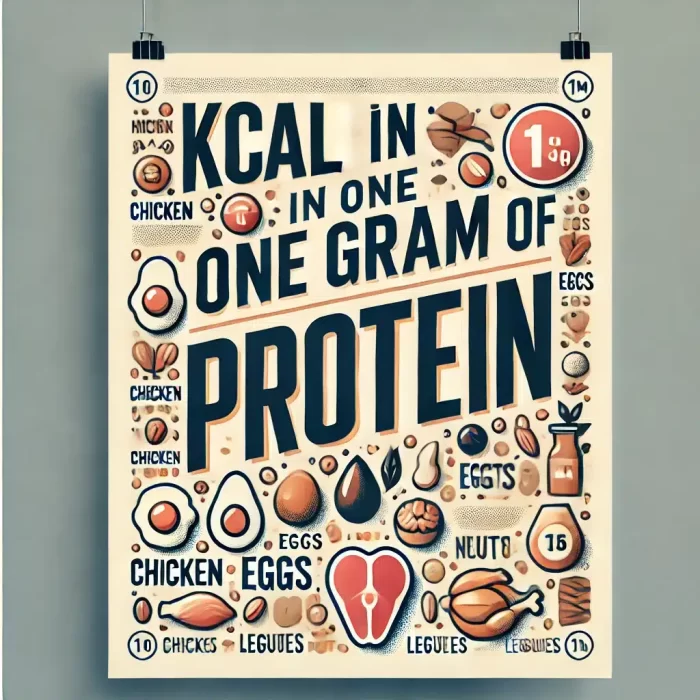
Now, let’s talk about one of protein’s coolest superpowers: the thermic effect of food (TEF). This is the amount of energy your body uses to digest, absorb, and process nutrients from your food. In other words, your body burns calories just by breaking down what you eat, kind of like how a car engine heats up while running.
Protein has the highest TEF compared to carbs and fats. Around 20-30% of the calories in protein are burned during digestion. That means if you eat 100 calories of protein, your body might use 20-30 calories just to process it. Compare that to carbs (5-10%) and fats (0-3%), and you can see why high-protein diets are popular for weight loss and muscle gain.
This thermic effect contributes to:
- Boosting metabolism: Your body burns more calories even when you’re not active.
- Increased satiety: Protein keeps you feeling fuller for longer, reducing cravings.
- Muscle maintenance: Digesting protein supports muscle repair, which also burns more calories at rest.
So, the next time you enjoy a protein-packed meal, remember, your body is working hard behind the scenes, burning calories just to digest that delicious food. It’s like a bonus calorie burn without hitting the gym!
How Much Protein Do You Need?
Now that we know how many calories protein provides, you might be wondering, “How much protein do I actually need?” The answer isn’t one-size-fits-all because it depends on factors like your age, activity level, health goals, and overall lifestyle.
The Recommended Dietary Allowance (RDA) for the average sedentary adult is about 0.8 grams of protein per kilogram of body weight. But if you’re more active, trying to build muscle, or aiming to lose weight, you’ll likely need more. Athletes, bodybuilders, and fitness enthusiasts often consume between 1.2 to 2.2 grams per kilogram of body weight.
Think of protein as your body’s building block. Whether you’re repairing muscles after a workout, supporting your immune system, or maintaining healthy skin and hair, protein plays a crucial role. So, listen to your body and adjust your intake based on your personal goals.
Calculating Your Protein Intake:
Figuring out your daily protein needs might sound complicated, but it’s actually pretty straightforward. Here’s a quick formula:
Grams of protein × 4 = Total kcal from protein
For example, if you aim to consume 75 grams of protein per day:
75 grams × 4 kcal = 300 kcal from protein
This simple calculation helps you track your macros, plan meals, and ensure you’re meeting your nutritional goals without the guesswork.
Practical Examples:
Let’s bring all this information to life with some real-world examples. Here’s how much protein (and its calorie content) you’ll find in common foods:
- Chicken breast (100g): ~31g protein = 124 kcal from protein
- Egg (1 large): ~6g protein = 24 kcal from protein
- Greek yogurt (150g): ~15g protein = 60 kcal from protein
- Almonds (28g/1 oz): ~6g protein = 24 kcal from protein
- Lentils (1 cup cooked): ~18g protein = 72 kcal from protein
Of course, these foods also contain fats and carbs, which contribute to their total calorie count. But knowing the protein content helps you make smarter food choices based on your goals.
So, next time you’re planning a meal or checking a nutrition label, you’ll have the confidence to calculate exactly how much energy your protein intake is providing, and that’s a game-changer for your health journey!
Does All Protein Have the Same Caloric Value?
Yes, all protein provides 4 kcal per gram, regardless of the source. However, not all protein sources are created equal in terms of nutrition and how your body processes them. For example, animal-based proteins (like meat, eggs, and dairy) are complete proteins, meaning they contain all nine essential amino acids your body needs. Plant-based proteins (like beans, lentils, and nuts) might lack one or more of these amino acids but still offer the same caloric value per gram of protein.
That said, the way your body digests and absorbs protein can vary depending on the source. Animal proteins are often absorbed more efficiently, while plant-based proteins may be digested slightly slower due to fiber and other components. But from a calorie-counting perspective, 4 kcal per gram is the standard across the board.
Frequently Asked Questions:
Does cooking protein change its calorie content?
No, cooking protein doesn’t change the calories per gram of protein itself. However, cooking methods (like frying in oil or adding sauces) can add extra calories from fats and carbs.
Is plant-based protein less effective than animal protein?
Not necessarily. While plant-based proteins might be lower in certain amino acids, you can combine different plant foods to get all essential amino acids. The calorie content remains the same: 4 kcal per gram.
Can eating too much protein lead to weight gain?
Yes, if you consume more calories than your body burns, even from protein, it can lead to weight gain. Calories are calories, whether they come from protein, carbs, or fats.
Is protein better for weight loss compared to carbs or fats?
Protein can help with weight loss because it keeps you fuller for longer and has a higher thermic effect, meaning your body burns more calories digesting it. But balance is key, you still need carbs and fats for overall health.
How can I track my protein intake accurately?
Use food labels, nutrition apps, or a food scale to measure your intake. Multiply the grams of protein by 4 to calculate the calories from protein.
Final Thoughts:
Knowing that one gram of protein equals 4 kcal can make a big difference in managing your diet effectively. Whether you’re tracking macros for fitness goals or just trying to eat healthier, understanding these basics can help you make informed choices.
Protein isn’t just a number on a nutrition label; it’s a vital nutrient that fuels your body, helps you build muscle, supports your immune system, and keeps you feeling full. So, next time you’re reading a nutrition label or planning your meals, you’ll know exactly how much energy your protein intake is providing. It’s a small detail that can have a big impact on your overall health journey.
